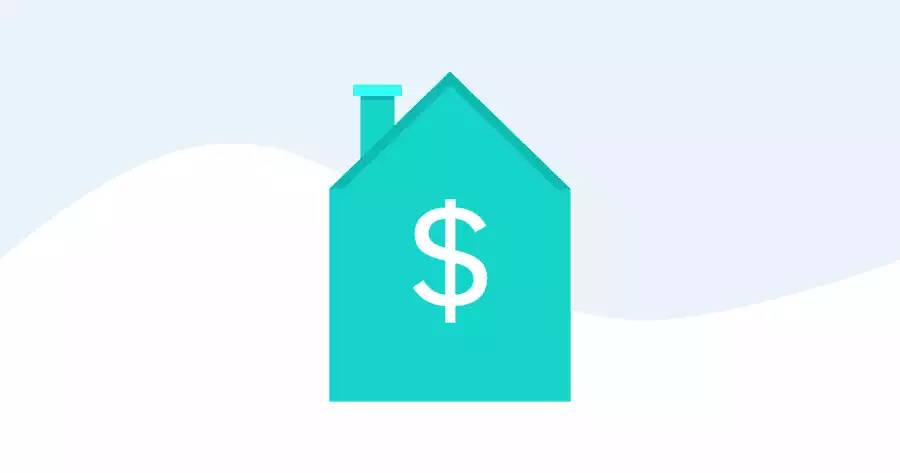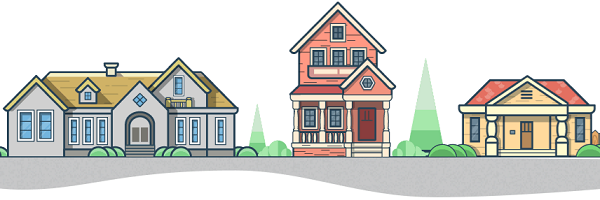
The credit score you have will directly affect how or if you can get a mortgage in Canada. If you have a good credit score, you’ll be offered competitive credit products. If you have a bad credit score, there will be less available to you. The good news is that your credit score can quickly improve when you change your financial habits. Also, there are some mortgage loan opportunities available even for those with bad credit.
If you want to own a home, you’ll want to start by looking at your credit score and understanding what it means. The lower the score, the more challenging it is to secure a mortgage. Generally, a lender views you as an unreliable borrower when your credit score is less than 680. At that point, the mortgage is high risk. While you can still get a mortgage, you’ll have to look at different lending options.
How bad credit will affect your getting a mortgage
There’s always a risk involved when you lend money. Lenders want assurance that money you will pay back everything in full. A lender looks at your credit score as the indicator of whether you’re a safe bet. The credit score needed to get a mortgage is depends on your lender. If you have a low score, you can get a mortgage but at a higher interest rate plus additional fees.
What Is a bad credit score?
A credit score in Canada ranges from a low of 300 to a high of 900. Categories by lender will vary but in general, a score of 660 is considered good. Most Canadian banks won’t approve borrowers if your score is below 600. Trust companies or private lenders require a score of at least 550. If you are under 550, you can potentially get a high-risk bad credit mortgage. There are many factors that affect your credit score and when you understand them, you can work to improve your score.
Debt-to-income ratio
Try to have no more than 30% debt on your credit cards. If you owe a lot in different ways, lenders think that you have a money problem. Therefore, try to carry a low debt-to-income ratio. For example, if you have a $1,000 credit on a card, try to make sure your card has a balance owed of $300 or less.
Don’t apply for too much credit at once
Don’t apply for sources of credit all at one time. Each time you apply for credit, it triggers a hard credit check. Too many hard checks in a short time also signals money trouble to lenders. The only instance where you can shop around for credit without incurring a check each time is when you shop for a mortgage or a car.
Credit history
Your credit score will be looked at closely. Lenders will have access to the money you owe and how you’ve used your credit products. Your history is available so any missed payments or defaults will come up. The length of your credit history is also important. This is why you should hold on to old credit cards. You can stop using them but don’t cancel them. Keep your oldest credit account open.
Debt history
Potential lenders loo at the other debts you’re carrying. This includes unpaid credit card balances, car loans, and other forms of debt. If you’re carrying a lot of debt already, this can affect your chances of obtaining the mortgage you want.
Other considerations beyond bad credit
Work history and income
As a mortgage usually involves a large sum of money. That said, a lender looks at more than just a credit score. They want to know you have the means to pay them back so they’ll be looking at your household income. When you apply for a mortgage, lenders review your employment history and financial records. If you’ve worked consistently on a full time basis for many years, this helps you with your mortgage application. Canada Revenue Agency can confirm your income through past notices of assessment.
Down payment
The higher your down payment is, the better your odds are of getting a mortgage. With good credit you are considered low risk; lenders might accept a down payment of 5%. If you have bad credit, you might have to put down a minimum of 20% of the purchase price. If you can put down a bigger down payment, great! Then you have more home equity and a shorter period of paying back the loan. You will also have access to better mortgage rates.
Property value
For those with bad credit and working with private lenders, the property's value is important. Once you find a house you like, have it appraised to find out its value. A lender may want assurance that the property is worth the investment in the event that you default on payments.
How to Buy a House With Bad Credit
It’s not as easy for those with bad credit to buy a house but it’s not impossible. There are many types of mortgages: joint mortgages, mortgages with guarantor, co-signed mortgages, and more. Compare them all to see what will work for your situation. You may need to secure a high-risk mortgage if you don’t qualify for mortgage from conventional. Here are a few tips on getting your first mortgage even with bad credit.
Rebuild your credit
It can take some time to rebuild your credit but it’s worth it. Check out your credit score and what is hindering you from improving it. Start to make those improvements like working on debt-to-income ratio, paying bills on time and getting a credit card for bad credit. It’s a matter of prioritizing where your money goes and how you spend it. This can improve your credit quickly and you’ll save a lot of money on interest rates for a mortgage.
Stable employment
Whether you are self-employed or employed, you want to keep your income stable. If you can do that, prime lenders are more likely to approve you. If your credit isn’t great and you have an unstable employment history, you’re going to be considered a risky investment. Find a stable source of income that can be confirmed through the Canada Revenue Agency. This will give lenders more confidence in your ability to pay back the loan.
Look at subprime and private lenders
If you can’t wait for a good credit score, there are some other options. You can talk with lenders that specialize in loans to people with bad credit. If you don’t want to wait for your credit score to improve, you can consider going with a lender that deals with bad credit borrowers.
If your score is lower than 600, you might have no choice but to find a private lender. They offer subprime loans offered at rates above prime. Basically, you’re going to be paying more interest.
Do be aware that with private lenders, you’ll probably have to put down a minimum down payment of 20%. Your rate can be anywhere from 10 to 15% on average. This is a lot more than with a traditional loan. In those cases, a prime lender might require only a 5% down payment with a 3 to 4% mortgage rate.
Save for a larger down payment
Some prime lenders will work with you if your credit score is bad if other criteria is met. If you have a 20% down payment, you may still be able to get a mortgage with a competitive interest rate. Some lenders accept a credit score of 620 to 640 if the down payment is good. An insured mortgage is required when you buy a home with less than 20% down. Otherwise, it’s not necessary and lenders are more likely to accept the fact you have a bad credit score.
Having a larger down payment shows the lender that you’re improving your financial situation. It shows you’re less of a risk. Another benefit is that you can pay off your mortgage faster or make smaller monthly payments.
Improve your credit score
If you decide it’s best to improve your credit score, there are a few things you can do. It doesn’t have to take a long time to rebuild. Be responsible with the credit products you have. Pay bills on time and in full. If you don’t have the funds to pay off your full credit card statement, at least meet the monthly minimum payment.
You can opt for a secured credit card like Refresh if you can’t get an unsecured card. Make sure you don’t apply for too much credit at one time. Any of the hard checks with your credit score will reduce your credit score. It may look like you have debt problems as well.
Find a co-signer or guarantor
If you have bad credit, a co-signer or guarantor can help you get a mortgage. This would be someone close to you like your legal guardians. Lenders are going to see this as a far less risky loan.
A co-signer will sign all the documents relating to the mortgage and their name is put on the title. They will co-own the home while you live in it and are liable for mortgage payments. This is putting the risk onto the co-signer as they make the payments if you can’t. A guarantor will guarantee that payments are made. They are responsible if you don’t pay but they don’t own the property.
Is it worth getting a mortgage with bad credit?
If you have a low credit score and don’t meet the minimum score needed for a mortgage, there are other alternatives. If an A-lender or prime lender won’t approve you, you can opt for a B-lender or subprime lender. They work with people like you who don’t have a good enough credit score to get a loan from the bank. If you happen to be working with a broker, they likely know a lender who can help you out.
Your broker will often be paid a finder’s fee by the lender. However, with a bad credit mortgage, you may have to pay extra fees if your broker refers to you. Beyond the finder’s fee, you’ll be paying other fees when you work with a subprime lender.
Normally, these fees wouldn’t happen if you were working with an A-lender. Not only are you paying a higher mortgage rate, you may pay up to a 1% processing fee on the total amount of your loan. If you work with a lender found through a poor credit mortgage broker, there may be another 1% added. Putting this in perspective, this 2% will be an additional $10,000 on a $500,000 mortgage loan.
If you have bad credit and want a mortgage, you’ll be paying much more throughout the lifetime of the loan. If you default on payments, the lender can sell your home to get back the costs of what you owe. Yes, you may have more luck locking in a mortgage loan but in the long run, you’ll be paying a lot.
Improve your credit score iinstead of getting a bad credit mortgage
Most financial experts will advise you to work on improving your credit score. Instead of buying a house, take the time to improve your credit score. Save some money while you’re at it so you can put a larger down payment on your home. Talk to a broker and find out how much money you’re going to pay in interest with each type of mortgage option.
Getting a mortgage with bad credit will involve higher interest rates. You’ll likely need to put down a minimum of 20% and there’s a risk that your home could be repossessed if you default on payments. Instead of applying for a bad credit mortgage, work to improve your credit score. This will save you a lot of money now and in the future.























About The Author: Loraine Couturier
Loraine Couturier has been freelance writing since 2012 while enjoying global travel. She writes helpful articles and whimsical books in her spare time while swinging in hammocks by the sea. Loraine loves writing about pretty much anything and likes to pass on the knowledge she has to others. Visit her at https://www.facebook.com/jetsetwritingchick
More posts by Loraine Couturier